- Introduction: The Timeless Wisdom of Sage Vasista
- Who Was Sage Vasista?
- The Essence of Dharma According to Vasista
- Top 20 Inspiring Vasista Quotes on Dharma for Righteous Living
- The Practical Application of Vasista's Teachings in Modern Life
- The Psychological Depth of Vasista's Teachings on Dharma
- The Philosophical Foundations of Vasista's Dharma
- Common Misconceptions About Dharma in Vasista's Teachings
- The Scientific Relevance of Vasista's Teachings
- How to Study and Contemplate Vasista's Teachings
- Frequently Asked Questions About Vasista Quotes on Dharma
- Conclusion: Embracing Vasista's Wisdom for Righteous Living
Introduction: The Timeless Wisdom of Sage Vasista
In the vast ocean of ancient Indian wisdom, few sages shine as brightly as Sage Vasista, one of the seven great sages (Saptarishis) in Hindu tradition. His teachings on dharma—righteous living, moral duty, and cosmic order—continue to illuminate the path for spiritual seekers thousands of years after they were first articulated. These vasista quotes on dharma offer not just philosophical insights but practical guidance for navigating life’s challenges with integrity and wisdom.
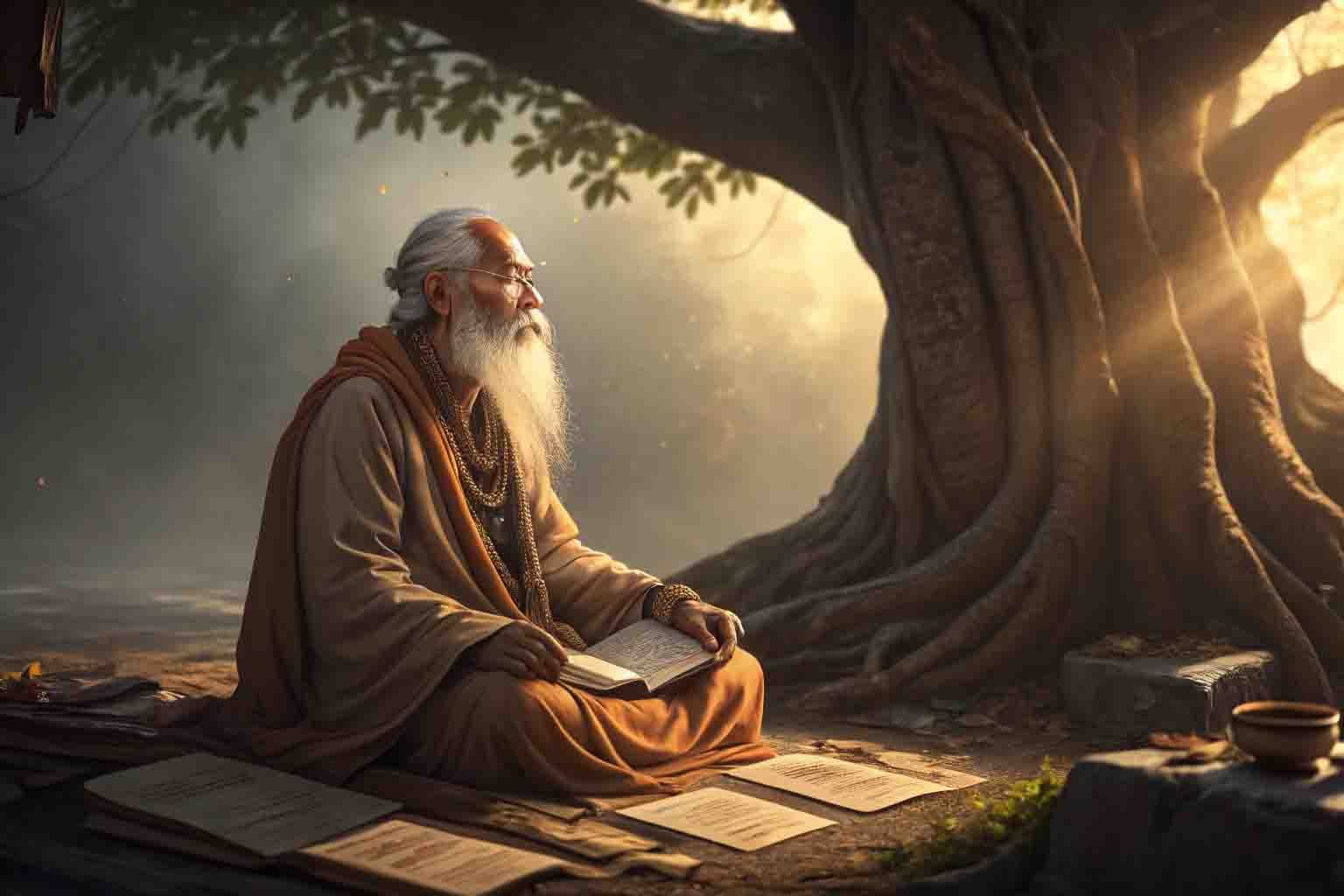
The beauty of Vasista’s teachings lies in their timeless relevance. Whether you’re facing ethical dilemmas, seeking spiritual growth, or simply trying to live a more meaningful life, these vasista quotes on dharma provide a compass for righteous living. In this comprehensive guide, we’ll explore 20 of the most inspiring quotes from Sage Vasista, each accompanied by deep analysis and practical applications for modern life.
As we journey through these profound teachings, you’ll discover that dharma is not merely about following rules but about understanding the fundamental nature of reality and our place within it. These vasista quotes on dharma will challenge your assumptions, expand your consciousness, and inspire you to live with greater purpose and authenticity.
Who Was Sage Vasista?
Before diving into the quotes themselves, it’s essential to understand the source of this wisdom. Sage Vasista (also spelled Vashishta or Vasishta) was one of the most revered sages in ancient India, credited as the chief author of the seventh mandala of the Rigveda. He was the family priest of the solar dynasty, serving as the spiritual guide to kings like Dasharatha and Lord Rama.
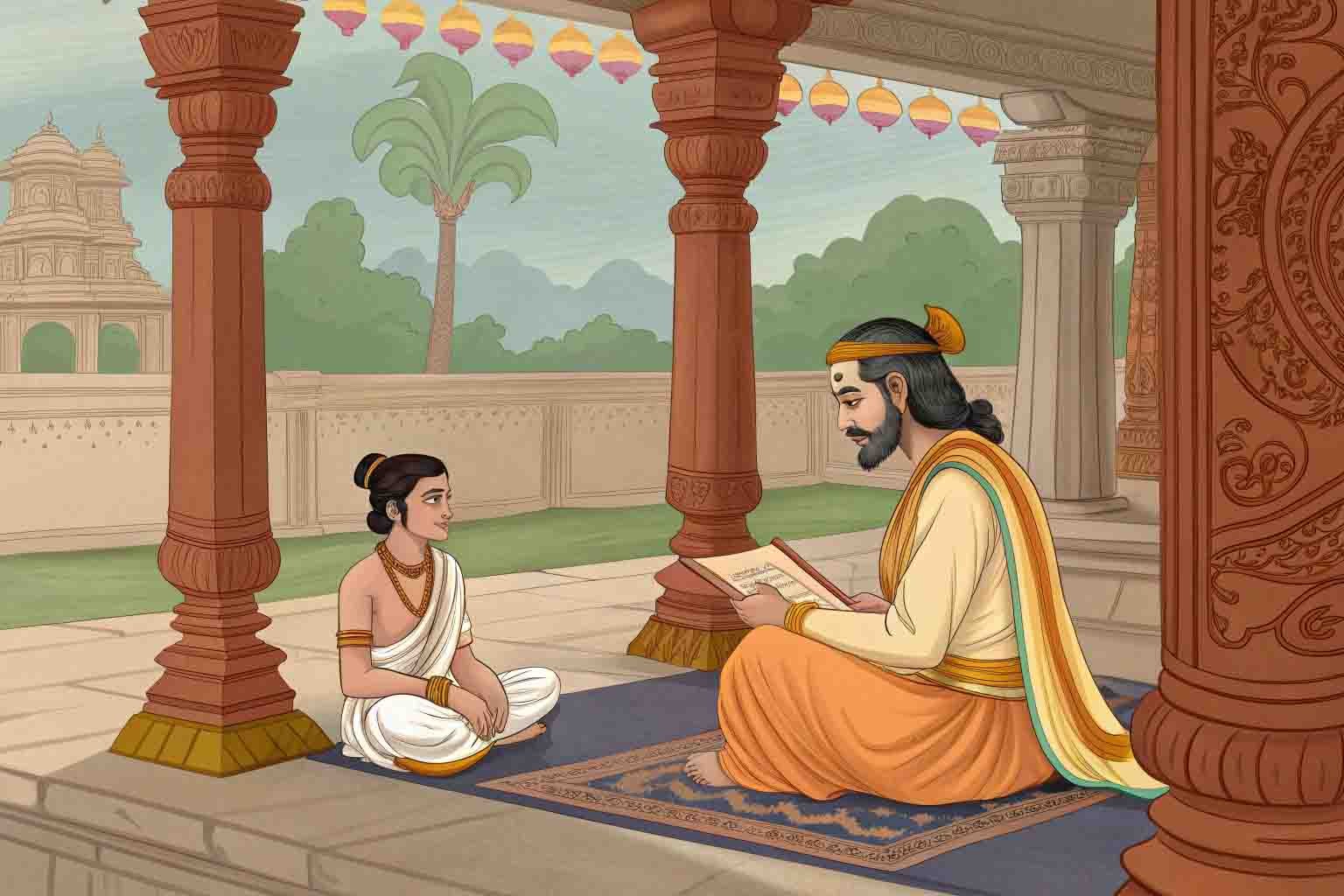
Vasista’s most significant contribution to spiritual literature is the Yoga Vasistha, a profound philosophical text that records his teachings to the young Lord Rama. This extraordinary dialogue between a sage teaching God himself represents the pinnacle of Advaita (non-dual) philosophy and contains some of the most profound insights into the nature of consciousness, liberation, and righteous living.
The vasista quotes on dharma we’ll explore come primarily from this sacred text, as well as from the Vashishta Dharmashastra, which outlines the principles of righteous living according to this great sage. These teachings have guided countless seekers through the ages and continue to offer invaluable wisdom for navigating the complexities of modern life.
The Essence of Dharma According to Vasista
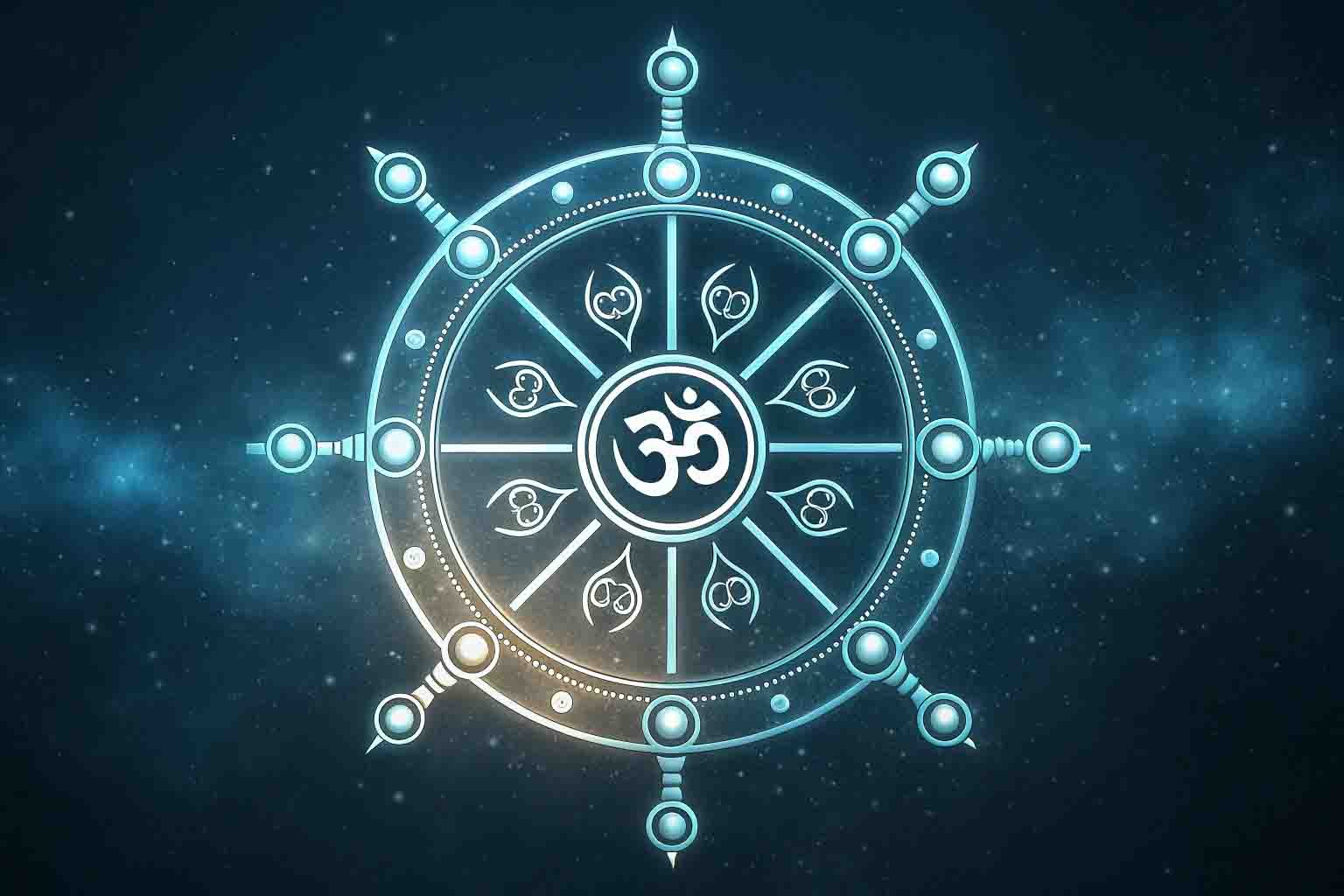
Before we delve into specific quotes, let’s understand what Vasista meant by “dharma.” In his teachings, dharma encompasses far more than mere religious duty or moral rules. For Vasista, dharma is the cosmic order that sustains the universe, the inherent nature of all beings, and the path that leads to liberation from suffering.
These vasista quotes on dharma reveal that righteous living is not about rigid adherence to external rules but about aligning oneself with the fundamental truth of existence. It’s about understanding our true nature as infinite consciousness and living in harmony with that understanding.
Vasista’s approach to dharma is both practical and profound. He doesn’t just tell us what to do; he explains why certain actions lead to suffering while others lead to liberation. His teachings on dharma are deeply psychological, addressing the root causes of human suffering and offering a path to lasting freedom and peace.
Top 20 Inspiring Vasista Quotes on Dharma for Righteous Living
1. “He who knows and follows the sacred law is called a righteous man. He becomes most worthy of praise in this world and after death gains heaven.”
This foundational quote from the Vashishta Dharmashastra establishes the core principle of dharma: that righteous living involves both knowledge and action. It’s not enough to merely know what is right; we must live by that knowledge. Vasista emphasizes that the rewards of righteous living extend beyond this life, suggesting that our actions have eternal consequences.
Practical Application: In daily life, this means aligning your actions with your highest values and understanding. When faced with ethical decisions, don’t just rely on external rules—cultivate inner wisdom and act from that place of understanding.
2. “Ideas and thoughts are bondage; and their coming to an end is liberation. Therefore, be free of them and do whatever has to be done spontaneously.”
This profound vasista quote on dharma reveals that true freedom comes not from controlling our thoughts but from transcending them entirely. Vasista suggests that liberation is the natural state when we’re not caught in the web of mental concepts and conditioning.
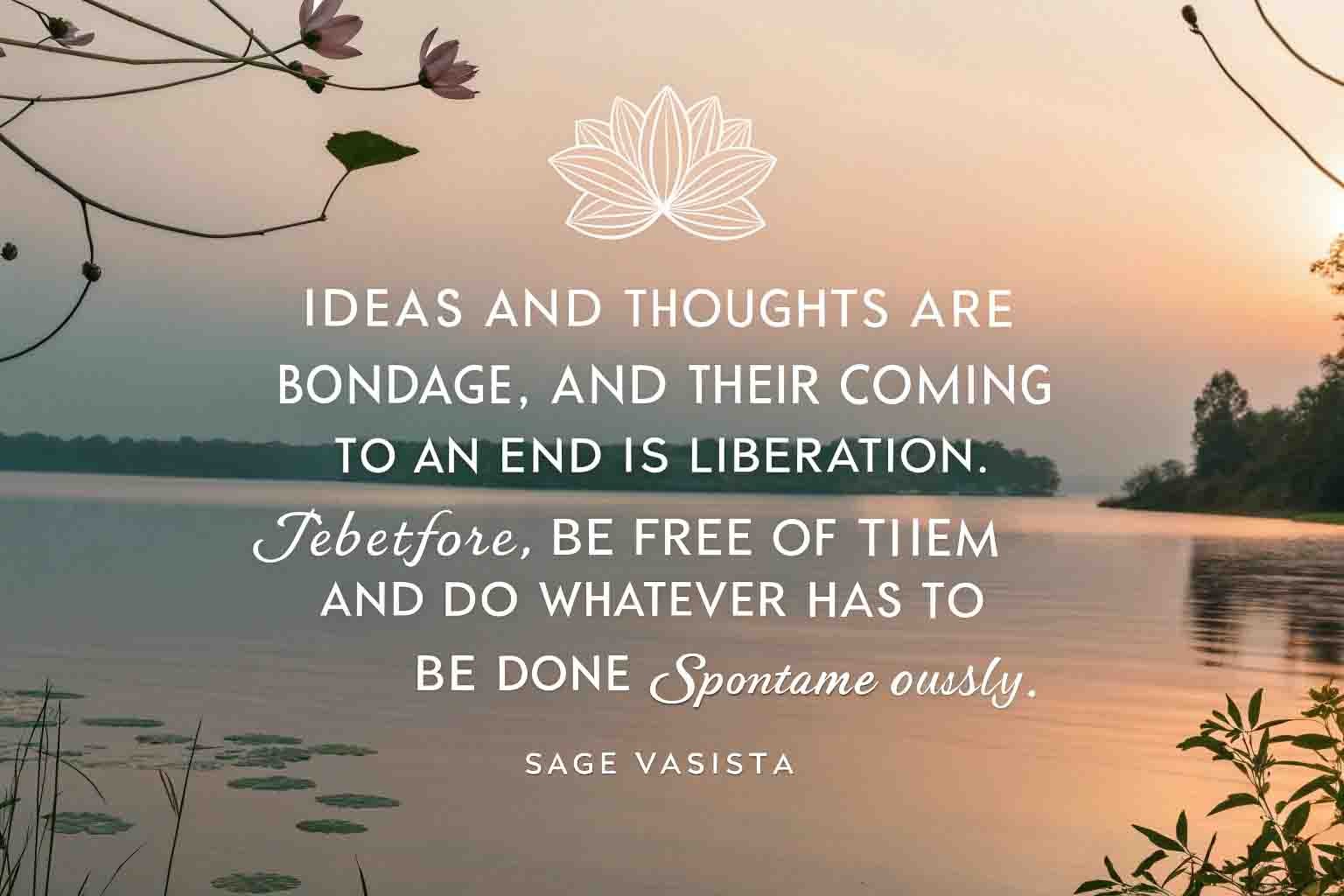
Practical Application: Practice mindfulness and meditation to observe your thoughts without attachment. When making decisions, try to act from a place of intuitive wisdom rather than overthinking and analysis.
3. “That mind is pure in which all cravings are in a state of quiescence. Whatever that pure mind wishes, that materializes.”
Here, Vasista connects purity of mind with creative power. When our minds are free from craving and attachment, they naturally align with the cosmic order, and our intentions manifest effortlessly.
Practical Application: Cultivate contentment and reduce desires through spiritual practice. When setting goals or making wishes, do so from a place of inner peace rather than lack or craving.
4. “Bondage is none other than the notion of an object. The notions of I and the world are but shadows, not truth. Such notions alone create objects; these objects are neither true nor false. Therefore abandon the notions of I and this and remain established in the truth.”
This vasista quote on dharma challenges our fundamental assumptions about reality. Vasista suggests that our sense of separation from the world is the root of bondage, and liberation comes from recognizing the illusory nature of this separation.
Practical Application: Question your assumptions about reality and identity. Practice seeing beyond the apparent separation between yourself and others, recognizing the underlying unity of all existence.
5. “It is only when the mind has become devoid of all attachment, when it is not swayed by the pairs of opposites, when it is not attracted by objects and when it is totally independent of all supports, that it is freed from the cage of delusion.”
Vasista outlines the path to liberation with remarkable clarity. Freedom from delusion comes when we’re no longer attached to outcomes, unaffected by pleasure and pain, and not dependent on external circumstances for our well-being.
Practical Application: Practice equanimity in the face of life’s ups and downs. When you experience pleasure or pain, success or failure, observe these experiences without attachment or aversion.
6. “Wealth is the mother of evil. Sense-pleasure is the source of pain. Misfortune is the best fortune. Rejection by all is victory. Life, honor and noble qualities blossom and attain fruition in one whose conduct and behavior are good and pleasant, who is devoted to seclusion and who does not crave for the pleasures of the world, which lead to suffering.”
This powerful vasista quote on dharma turns conventional wisdom on its head. Vasista suggests that what we typically consider good (wealth, pleasure, social acceptance) can actually lead to suffering, while what we consider bad (misfortune, rejection) can be blessings in disguise.
Practical Application: Reevaluate your relationship with material possessions and social approval. Find value in simplicity and solitude, recognizing that true fulfillment comes from within rather than from external sources.
7. “Bondage is the craving for pleasure; and its abandonment is liberation.”
In this simple yet profound statement, Vasista distills the essence of spiritual liberation. Freedom comes not from getting what we want but from no longer wanting anything in particular.

Practical Application: Observe your cravings without judgment. When you notice yourself wanting something, pause and ask whether fulfilling this desire will truly lead to lasting happiness or temporary satisfaction followed by more craving.
8. “O mind, abandon this perception of diversity and realize the unreality of your own independence from the infinite consciousness: this is liberation.”
This vasista quote on dharma points to the non-dual nature of reality. Our sense of being separate individuals is an illusion that causes suffering; liberation comes from recognizing our unity with infinite consciousness.
Practical Application: Practice seeing yourself in others and others in yourself. Look beyond surface differences to recognize the shared consciousness that animates all beings.
9. “One should enjoy the delight that flows from peace. The man whose mind is well-controlled is firmly established in peace. When the heart is thus established in peace, there arises the pure bliss of the Self without delay.”
Vasista emphasizes that true happiness comes not from external pleasures but from inner peace. When we master our minds, we access a source of joy that doesn’t depend on circumstances.
Practical Application: Prioritize peace of mind over external achievements. Make time for meditation, contemplation, and activities that cultivate inner calm.
10. “Consciousness free from the limitations of the mind is known as the inner intelligence: it is the essential nature of no-mind. That is the reality, that is supreme consciousness, that is the state known as the supreme self, that is omniscience.”
This vasista quote on dharma reveals that our true nature is not the limited mind but infinite consciousness. When we transcend mental limitations, we access a state of knowing that transcends ordinary understanding.
Practical Application: Practice periods of “no-mind” through meditation or mindfulness. Allow yourself to rest in awareness beyond thought, even if only for brief moments.
11. “Free from the least attachment he enjoys whatever comes to him unsought, even as the eyes perceive their objects without desire or aversion.”
Vasista paints a picture of the liberated person who receives life’s experiences without attachment or aversion. Like the eyes that simply see without preferring one sight over another, the enlightened person experiences life without grasping or rejecting.
Practical Application: Practice receiving whatever comes your way with equanimity. When you experience pleasure or pain, success or failure, notice your tendency to cling or resist and gently return to a state of non-attached awareness.
12. “He whose mind is firmly established in peace through the practice of yoga has the right vision of the truth.”
This vasista quote on dharma connects the practice of yoga (in its broader sense of spiritual discipline) with the ability to perceive truth correctly. When our minds are peaceful, we see reality as it is, not as we wish it to be.
Practical Application: Commit to a regular spiritual practice that cultivates inner peace. This could be meditation, yoga asana, prayer, or any discipline that helps calm the mind and open the heart.
13. “To see that the supreme self is without beginning or end, and that these countless objects are in fact the self and no other, is the right vision. Erroneous vision leads to rebirth; right vision ends rebirth.”
Vasista explains that liberation comes from recognizing the eternal nature of the self and the illusory nature of separation. When we see correctly, we break the cycle of suffering and rebirth.
Practical Application: Contemplate the eternal nature of consciousness. Notice that while your body, thoughts, and circumstances change, there’s an awareness that remains constant.
14. “The state of mind of the liberated ones who are still living and who see both the supreme truth and the relative appearance, is known as satva (transparency). It is improper to call it the mind: it is really satva. These knowers of truth are mindless and are in a state of perfect equilibrium: they live their life here playfully.”
This vasista quote on dharma describes the state of the enlightened person who can navigate both absolute and relative reality. Such a person lives with lightness and playfulness, not taking the world too seriously while still functioning effectively within it.
Practical Application: Cultivate a sense of playfulness and lightness in your spiritual practice. Don’t become rigid or dogmatic in your approach to truth; remain open and adaptable.
15. “The wise ones say that one is established in pure being or Brahman only after one has investigated the nature of the truth as expounded in the scriptures, in the company and with the help of enlightened sages.”
Vasista emphasizes the importance of both study and association with wise teachers on the spiritual path. Right understanding comes from a combination of scriptural knowledge and direct guidance from those who have realized the truth.
Practical Application: Study sacred texts and seek out teachers or communities that embody the wisdom you aspire to. Balance book learning with direct experience and guidance.
16. “Death does not wish to kill one who does not have raga-dvesa (attraction and aversion) nor false notions and mental habits. Death does not wish to kill one who does not suffer from mental illness, who does not entertain desires and hopes which give rise to anxieties and worry, who is not poisoned by greed, whose body and mind are not burnt by the fire of anger and hate, who is not churned and ground by the mill of lust, who is firmly established in the pure awareness of Brahman and the absolute and whose mind is not distracted like a monkey.”
This comprehensive vasista quote on dharma lists the qualities of one who has conquered death—not physical death, but the fear of death and the cycle of rebirth. Freedom from attachment, aversion, and negative emotions leads to liberation.
Practical Application: Work consciously to reduce attraction, aversion, and negative emotions in your daily life. Practice self-awareness and cultivate positive mental states through meditation and mindfulness.
17. “Hence, O sage, one should remain firmly established in the imperishable and eternal self which is free from nescience and from all seeking. One should slay the ghost of duality or division and fix the heart on the one truth, which alone is sweet in the beginning, in the middle and in the end.”
Vasista encourages us to anchor ourselves in the eternal self rather than the changing world of appearances. By overcoming the illusion of duality, we access a truth that brings lasting satisfaction.
Practical Application: Regularly remind yourself of your true nature as eternal consciousness. When you feel caught in worldly concerns, pause and reconnect with your deeper identity.
18. “The best of all states, O sage, is indeed the vision of the one infinite consciousness. Even the contemplation of the self which is infinite consciousness banishes sorrow, terminates the long-dream vision of the world-appearance, purifies the mind and the heart, and dispels worries and misfortunes.”
This vasista quote on dharma emphasizes the transformative power of self-contemplation. Simply turning our attention to our true nature as infinite consciousness can dissolve suffering and purify the mind.
Practical Application: Make time for self-inquiry and contemplation. Ask yourself “Who am I?” and rest in the awareness that arises from this question.
19. “When there is effortless suspension of breath, it is the supreme state. This is the self, it is pure infinite consciousness. He who reaches this does not grieve.”
Vasista points to the connection between breath control and spiritual realization. When the breath becomes still and effortless, we access our true nature as infinite consciousness.
Practical Application: Practice pranayama (breath control) techniques that lead to natural breath suspension. Even simple breath awareness can help calm the mind and reveal deeper states of consciousness.
20. “I salute that consciousness which is the source for both prana and apana, which is the energy in both prana and apana and which enables the senses to function.”
In this final vasista quote on dharma, Vasista pays homage to the consciousness that underlies all life and energy. Recognizing this consciousness as the source of all that we experience is the culmination of spiritual understanding.
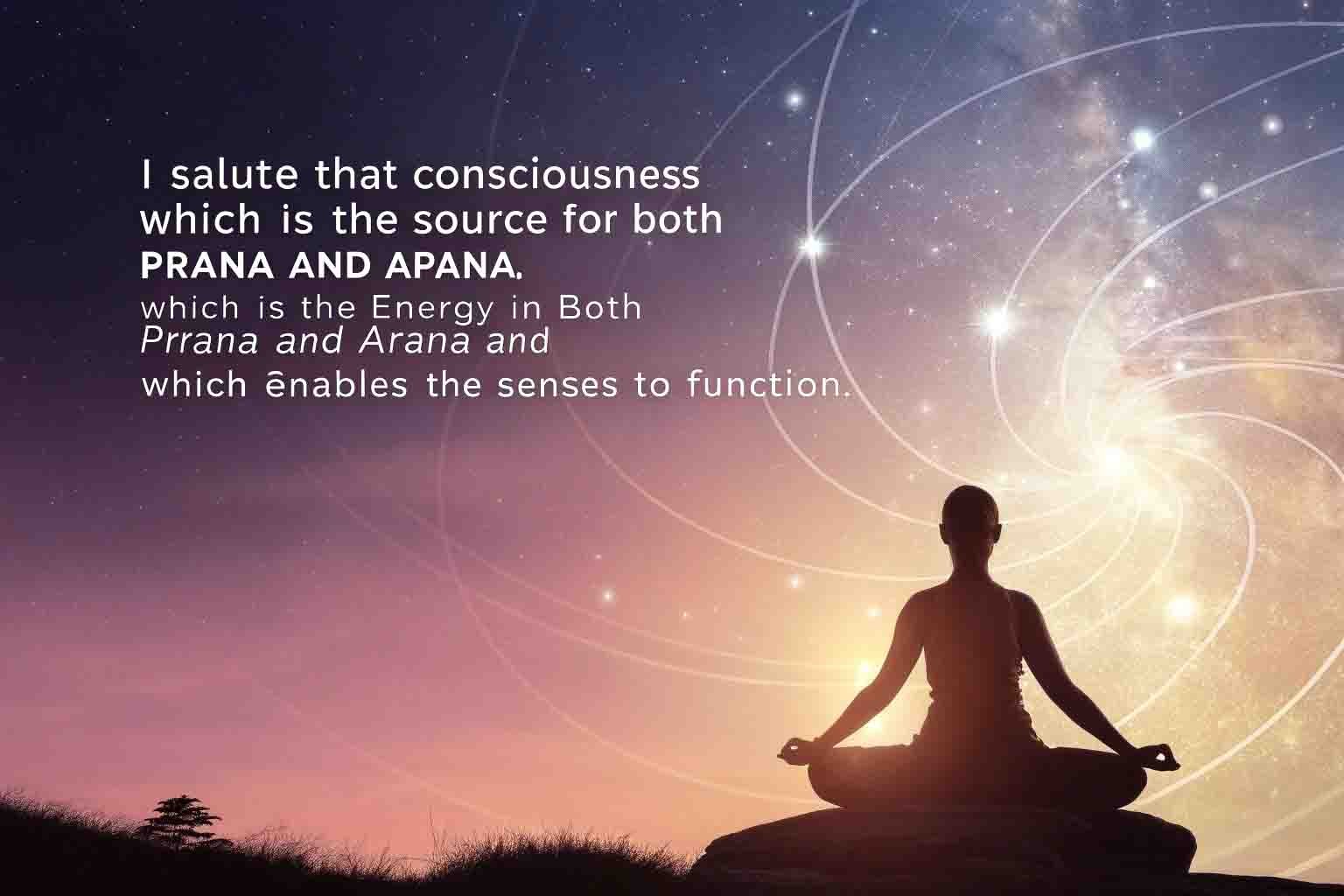
Practical Application: Practice seeing the divine consciousness in everything—in your breath, in your senses, in all of life’s experiences. This recognition is the essence of dharma.
The Practical Application of Vasista’s Teachings in Modern Life

While these vasista quotes on dharma are ancient, their practical application in modern life is immediate and profound. In a world characterized by stress, distraction, and disconnection, Vasista’s teachings offer a path to inner peace and authentic living.
Integrating Dharma into Daily Decision-Making
One of the most valuable aspects of these vasista quotes on dharma is their guidance for ethical decision-making. Vasista doesn’t just tell us what to do; he helps us understand the underlying principles that lead to wholesome actions. When faced with difficult choices, we can ask ourselves:
- Does this action arise from craving and attachment, or from wisdom and compassion?
- Am I acting from a sense of separation or recognition of unity?
- Will this action lead to lasting peace or temporary satisfaction followed by more craving?
By using these questions as a filter, we can align our daily decisions with the principles of dharma outlined in Vasista’s teachings.
Cultivating Inner Peace Through Vasista’s Wisdom
Modern life is characterized by unprecedented levels of stress and anxiety. The vasista quotes on dharma we’ve explored offer powerful antidotes to these modern afflictions. Practices like:
- Mindfulness of thoughts without attachment
- Cultivation of equanimity in the face of pleasure and pain
- Recognition of our true nature as infinite consciousness
These practices can help us navigate the challenges of modern life with greater resilience and peace.
Building Righteous Relationships
Vasista’s teachings have profound implications for how we relate to others. When we recognize the underlying unity of all beings, as suggested in these vasista quotes on dharma, our relationships naturally become more compassionate and harmonious. We begin to see others not as separate entities but as expressions of the same consciousness that animates us.
This perspective transforms how we handle conflicts, make decisions about our relationships, and show up for others in need. It’s the foundation for truly righteous living in the context of human connection.
The Psychological Depth of Vasista’s Teachings on Dharma
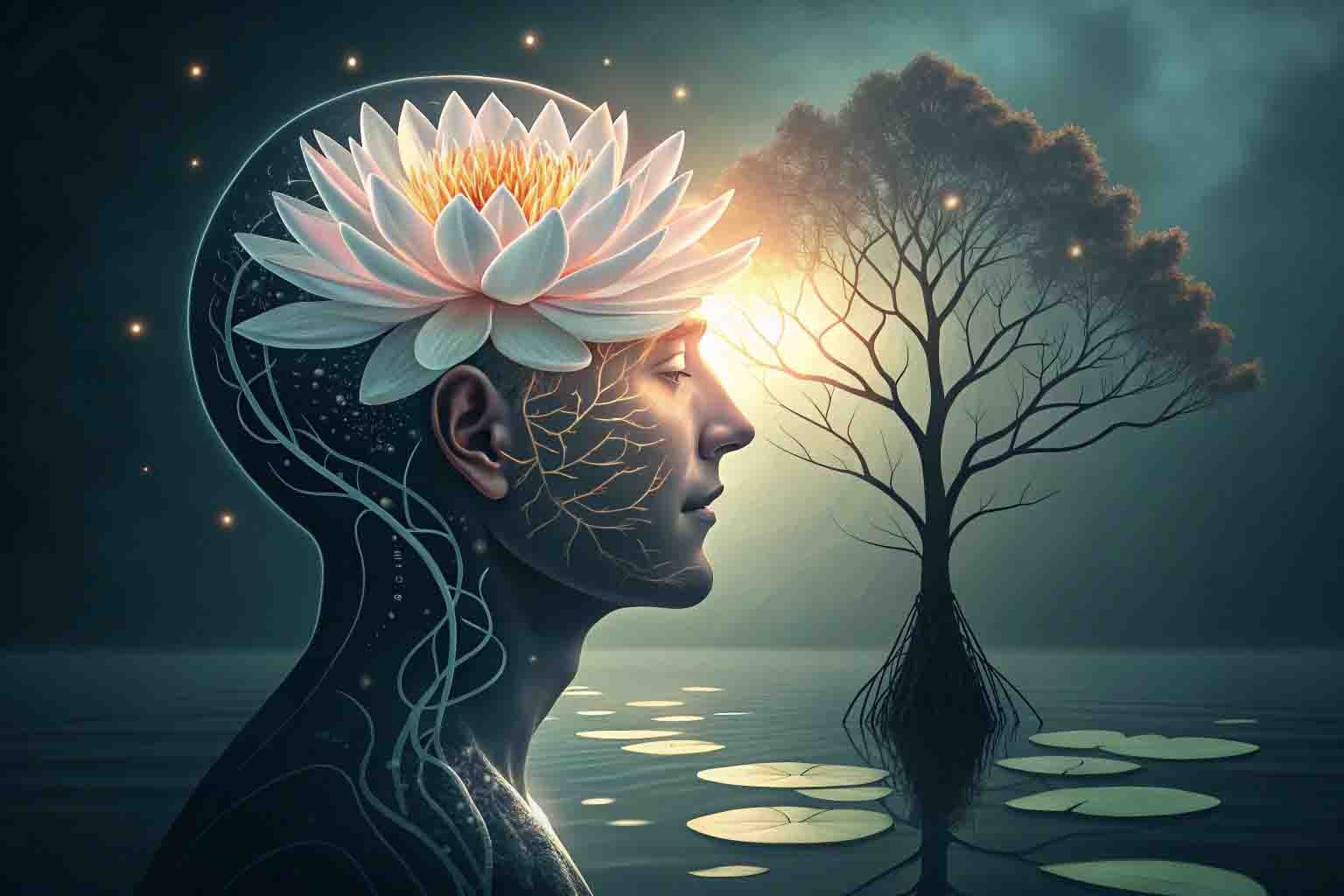
What makes these vasista quotes on dharma particularly powerful is their deep psychological insight. Vasista understood the human mind with remarkable clarity, and his teachings address the root causes of suffering at the psychological level.
Understanding the Nature of Mind and Conditioning
Vasista’s teachings reveal that our suffering comes not from external circumstances but from our mental conditioning and habitual patterns of thought. The vasista quotes on dharma we’ve explored consistently point to the mind as both the source of bondage and the key to liberation.
This understanding is remarkably aligned with modern psychology, which recognizes the power of cognitive patterns and conditioning in shaping our experience of life. Vasista’s teachings offer practical methods for working with these patterns, much like cognitive-behavioral therapy does in modern psychology.
The Role of Self-Awareness in Spiritual Growth
Throughout these vasista quotes on dharma, there’s an emphasis on self-awareness as the foundation for spiritual growth. Vasista teaches that liberation comes not from changing external circumstances but from understanding and transforming our inner world.
This emphasis on self-awareness is particularly relevant in today’s world, where many of us live on autopilot, reacting to life rather than consciously choosing our responses. Vasista’s teachings invite us to wake up to our habitual patterns and choose a different way of being.
The Psychology of Attachment and Liberation
One of the most psychologically astute aspects of Vasista’s teachings is his analysis of attachment and its role in human suffering. The vasista quotes on dharma we’ve explored consistently point to attachment—whether to pleasure, to outcomes, or to our sense of self—as the root of bondage.
This understanding is remarkably consistent with modern psychological insights into the nature of addiction, codependency, and other forms of attachment that cause suffering. Vasista’s teachings offer a path to psychological freedom that’s both ancient and cutting-edge in its relevance.
The Philosophical Foundations of Vasista’s Dharma
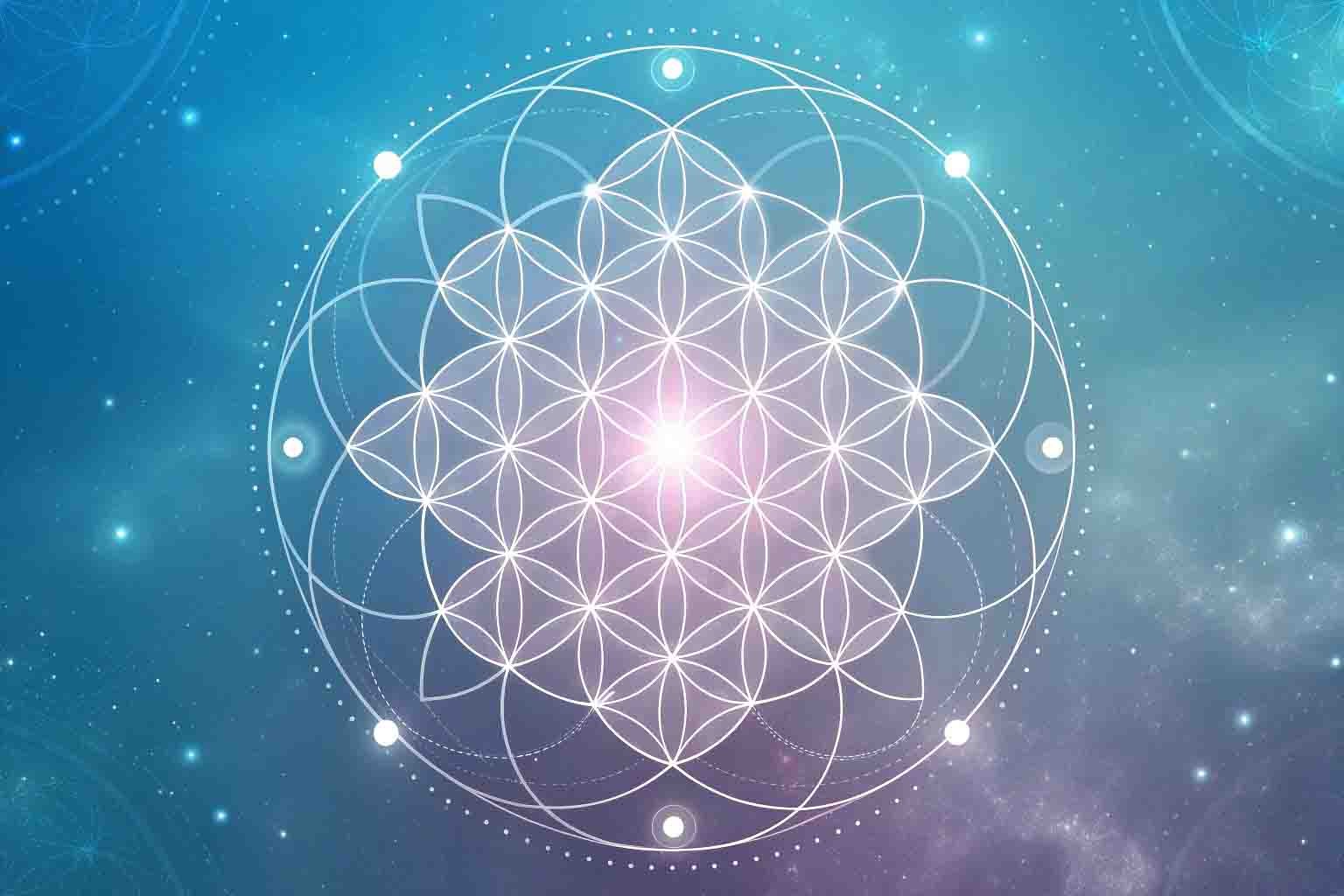
Beyond their practical and psychological dimensions, these vasista quotes on dharma rest on profound philosophical foundations. Understanding these foundations can deepen our appreciation of Vasista’s teachings and their relevance to contemporary spiritual seekers.
Non-Duality: The Ultimate Reality
At the heart of Vasista’s teachings is the philosophy of non-duality (Advaita), which asserts that ultimate reality is a single, undivided consciousness. The apparent diversity and separation we experience in the world is ultimately an illusion, according to this perspective.
This philosophical foundation underpins many of the vasista quotes on dharma we’ve explored. When Vasista speaks of abandoning the “notions of I and this” or recognizing that “all this is nothing but the self,” he’s pointing to this non-dual understanding.
The Illusory Nature of the World
Related to non-duality is Vasista’s teaching about the illusory nature of the world. This doesn’t mean that the world doesn’t exist, but that it doesn’t exist in the way we perceive it. Our ordinary perception of reality as consisting of separate objects and individuals is a projection of consciousness, not the ultimate truth.
This understanding helps explain why Vasista emphasizes inner transformation over external change in many of these vasista quotes on dharma. If the world as we perceive it is ultimately a projection of consciousness, then changing our consciousness is the most effective way to transform our experience of life.
The Path of Knowledge (Jnana Yoga)
Vasista’s approach to spiritual liberation is primarily through knowledge (jnana), distinguishing it from paths that emphasize devotion (bhakti) or action (karma). The vasista quotes on dharma we’ve explored consistently point to understanding and insight as the keys to freedom.
This path of knowledge involves inquiry into the nature of reality and the self, leading to direct realization of truth. It’s a path that appeals to those who are philosophically inclined and who find liberation through understanding rather than through emotion or action alone.
Common Misconceptions About Dharma in Vasista’s Teachings
As we explore these vasista quotes on dharma, it’s important to address some common misconceptions about dharma that can lead to misunderstanding of Vasista’s teachings.
Misconception 1: Dharma is About Rigid Rules
One common misconception is that dharma is primarily about following rigid rules and regulations. While Vasista does acknowledge the importance of ethical conduct, his approach to dharma is much more subtle and sophisticated.
The vasista quotes on dharma we’ve explored reveal that true dharma is about understanding the fundamental nature of reality and aligning ourselves with that understanding. It’s not about blind obedience to external rules but about inner wisdom and insight.
Misconception 2: Dharma Requires Renunciation of the World
Another misconception is that living according to dharma requires renouncing the world and living as an ascetic. While Vasista acknowledges the value of renunciation for some, his teachings are equally applicable to those living active lives in the world.
Many of the vasista quotes on dharma we’ve explored emphasize the importance of inner transformation rather than external changes. Vasista teaches that we can live in the world without being of it, maintaining inner peace and wisdom while engaging fully with life.
Misconception 3: Dharma is Only for Religious People
Some might assume that dharma is only relevant to those who follow a particular religious tradition. However, the vasista quotes on dharma we’ve explored contain universal wisdom that can benefit anyone, regardless of their religious or spiritual beliefs.
Vasista’s teachings are about the fundamental nature of consciousness and reality, about the causes of suffering and the path to liberation. These are universal human concerns that transcend religious boundaries.
The Scientific Relevance of Vasista’s Teachings
Interestingly, many of the insights in these vasista quotes on dharma are finding resonance with modern scientific discoveries, particularly in the fields of neuroscience and quantum physics.

Neuroscience and the Nature of Mind
Modern neuroscience is confirming many of Vasista’s insights about the nature of mind and consciousness. Research on neuroplasticity shows that our mental patterns can be changed through conscious practice, much as Vasista suggests in his teachings on transforming the mind.
Studies on meditation and mindfulness—practices consistent with many vasista quotes on dharma—demonstrate their effectiveness in reducing stress, improving emotional regulation, and enhancing overall well-being. These scientific findings lend credibility to Vasista’s ancient wisdom.
Quantum Physics and Non-Duality
The discoveries of quantum physics, particularly those related to the interconnected nature of reality, resonate strongly with the non-dual philosophy underlying many vasista quotes on dharma. Concepts like quantum entanglement suggest that at the most fundamental level, the universe is an interconnected whole, much as Vasista taught thousands of years ago.
While it would be an overstatement to claim that quantum physics proves Vasista’s teachings, there are certainly intriguing parallels that suggest these ancient insights may have been pointing to truths that modern science is only now beginning to uncover.
Psychology and the Nature of Suffering
Modern psychology, particularly approaches like cognitive-behavioral therapy and mindfulness-based interventions, align closely with Vasista’s understanding of the mind and the causes of suffering. The recognition that our thoughts create our reality, and that changing our relationship with our thoughts can transform our experience, is central to both Vasista’s teachings and modern psychological approaches.
This convergence of ancient wisdom and modern science lends additional credibility to the vasista quotes on dharma we’ve explored and suggests their continued relevance in our scientific age.
How to Study and Contemplate Vasista’s Teachings

To fully benefit from these vasista quotes on dharma, it’s important to approach them with the right attitude and method of study. Here are some guidelines for deepening your understanding of Vasista’s teachings.
The Importance of Direct Experience
Vasista emphasizes that spiritual understanding must be based on direct experience, not merely intellectual knowledge. While studying these vasista quotes on dharma is valuable, the real transformation comes from applying the teachings in your own life and experiencing their truth directly.
Make time for meditation, self-inquiry, and mindful observation of your own mind. These practices will help you move from intellectual understanding to direct realization of the truths Vasista points to.
The Value of Community and Guidance
While Vasista’s teachings can be studied individually, there’s great value in learning with others and seeking guidance from those who have deeper experience with these teachings. Consider joining a study group or finding a teacher who can help clarify difficult concepts and provide guidance for your practice.
Many of the vasista quotes on dharma we’ve explore are subtle and profound, and having the support of a community can help prevent misunderstandings and keep you motivated in your practice.
Balancing Study with Practice
It’s important to balance intellectual study with practical application. Don’t get so caught up in understanding the philosophy that you neglect to actually practice the teachings. At the same time, don’t practice without understanding, as this can lead to confusion and misunderstanding.
The vasista quotes on dharma we’ve explored are meant to be both studied and lived. Find a balance that works for you, allowing time for both intellectual understanding and practical application.
Frequently Asked Questions About Vasista Quotes on Dharma
What is the primary message of Vasista’s teachings on dharma?
How can I apply Vasista’s teachings in my daily life?
Are Vasista’s teachings relevant to non-Hindus?
What’s the difference between Vasista’s approach to dharma and other Hindu teachings?
How long does it take to experience the benefits of practicing Vasista’s teachings?
Conclusion: Embracing Vasista’s Wisdom for Righteous Living
As we conclude our exploration of these 20 inspiring vasista quotes on dharma, it’s clear that Sage Vasista’s teachings offer a profound and practical path to righteous living. His insights into the nature of consciousness, the causes of suffering, and the path to liberation are as relevant today as they were thousands of years ago.
The beauty of these vasista quotes on dharma lies in their ability to speak to us at multiple levels—as practical guidance for daily living, as psychological insights into the nature of mind, and as philosophical pointers to ultimate reality. Whether you’re seeking ethical guidance, psychological healing, or spiritual liberation, Vasista’s teachings have something valuable to offer.
As you move forward from this exploration, consider choosing one or two of these vasista quotes on dharma that particularly resonate with you and making them the focus of your contemplation and practice. Remember that the goal is not merely intellectual understanding but direct experience and transformation.

May these vasista quotes on dharma illuminate your path to righteous living, bringing you greater peace, wisdom, and joy in all aspects of your life. And may you, like the enlightened beings Vasista describes, come to experience the truth of your own nature as infinite consciousness, free from suffering and full of boundless love and compassion.
Your Journey with Vasista’s Wisdom
Now that you’ve explored these profound vasista quotes on dharma, we invite you to take the next step on your spiritual journey:
- Share Your Insights: Which of these vasista quotes on dharma resonated most deeply with you? Share your thoughts and experiences in the comments below.
- Start a Practice: Choose one practice suggested by these teachings—whether it’s mindfulness, self-inquiry, or breath awareness—and commit to practicing it daily for the next 30 days.
- Deepen Your Study: If you’re inspired to explore further, consider reading the Yoga Vasistha in its entirety or joining a study group dedicated to these profound teachings.
Remember, the journey of a thousand miles begins with a single step. May these vasista quotes on dharma be that first step on your path to greater wisdom, peace, and liberation.
Reference Links
- The Vashishta Dharmashastra, Part 1 – Hinduwebsite.com https://www.hinduwebsite.com/sacredscripts/hinduism/dharma/vash1.asp
- Greatest Verses from Yoga Vasistha – Dharma Kirtan http://dharmakirtan.blogspot.com/2013/05/greatest-verses-from-yoga-vasistha.html
- Yoga Vasishta on Death & Afterlife – AumAmen https://aumamen.com/topic/yoga-vasishta-on-death-afterlife
- The path to Liberation – Sublime Teachings from the Yoga Vasistha – TomDas.com https://tomdas.com/2019/08/29/the-path-to-liberation-sublime-teachings-from-the-yoga-vasistha/
- Vasistha – Wikipedia https://en.wikipedia.org/wiki/Vasishtha
- Yoga Vasishta Sara Quotes by Vālmīki – Goodreads https://www.goodreads.com/work/quotes/27158187-yoga-vasishta-sara
- Sage Vasishtha: Significance and symbolism – Wisdom Library https://www.wisdomlib.org/concept/sage-vasishtha
- Vasistha Dharmasutra: Chapter XVII – Wisdom Library https://www.wisdomlib.org/hinduism/book/vasistha-dharmasutra/d/doc116379.html
A storyteller and emotional architect, dedicated to capturing the essence of human experience through words. My journey began with a deep fascination for language, evolving into a unique voice that resonates on a personal level. With an intuitive grasp of complex emotions, I craft messages that speak directly to the soul. Every word I write reflects my commitment to quality, as I believe the right words can truly transform lives.



